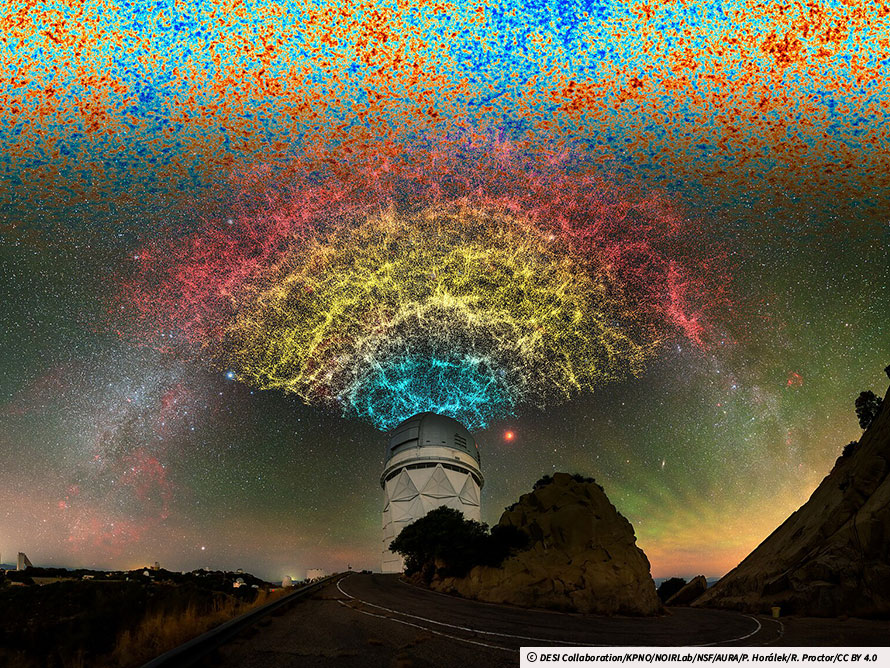Will we be astonished by how little we know now? For the last century we have been grasping towards an understanding of our own universe. New data suggests we got it all wrong.
2030 forecast: dark energy laid bare
 Mysterious beauty: The rainbow pattern above shows 60,000 galaxies captured by the Dark Energy Spectroscopic Instrument, less than 0.1% of the survey's full volume.
Mysterious beauty: The rainbow pattern above shows 60,000 galaxies captured by the Dark Energy Spectroscopic Instrument, less than 0.1% of the survey's full volume. Glossary
Mars - The fourth planet from the Sun and the second-smallest planet in the Solar System.
Universe - Everything. Including all of time and space and its contents.
Arizona - A state in the southwest USA with a population of more than 7 million.
Dark energy - An unknown form of energy causing the expansion of the universe to accelerate.
Newtonian - Related to the work of Sir Isaac Newton, the English physicist and mathematician who is known for his discovery of gravity.
Gravity - An invisible force that pulls objects towards each other. Earth's gravity keeps us on the ground and makes things fall. It is less strong on Mars.
Big Bang - The moment the universe came into being. It is thought that this took place in a kind of explosion from a dimensionless singularity.
Colloquially - Language that is used in ordinary conversations. Informal language.
Homogeneously - Acting all in the same way.
